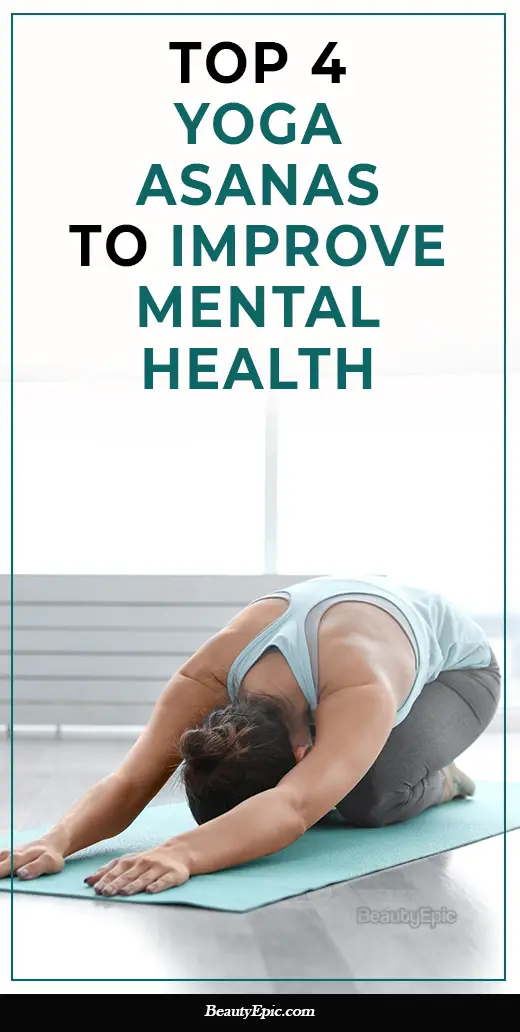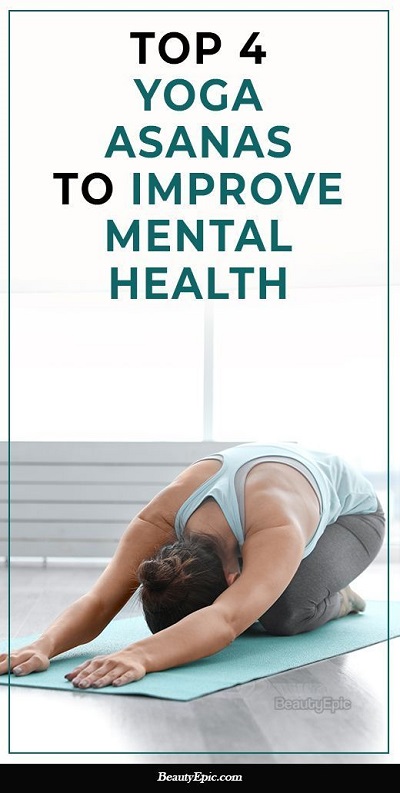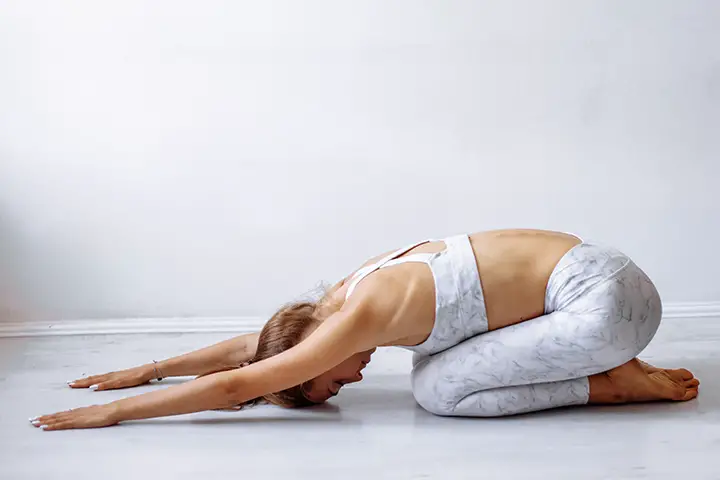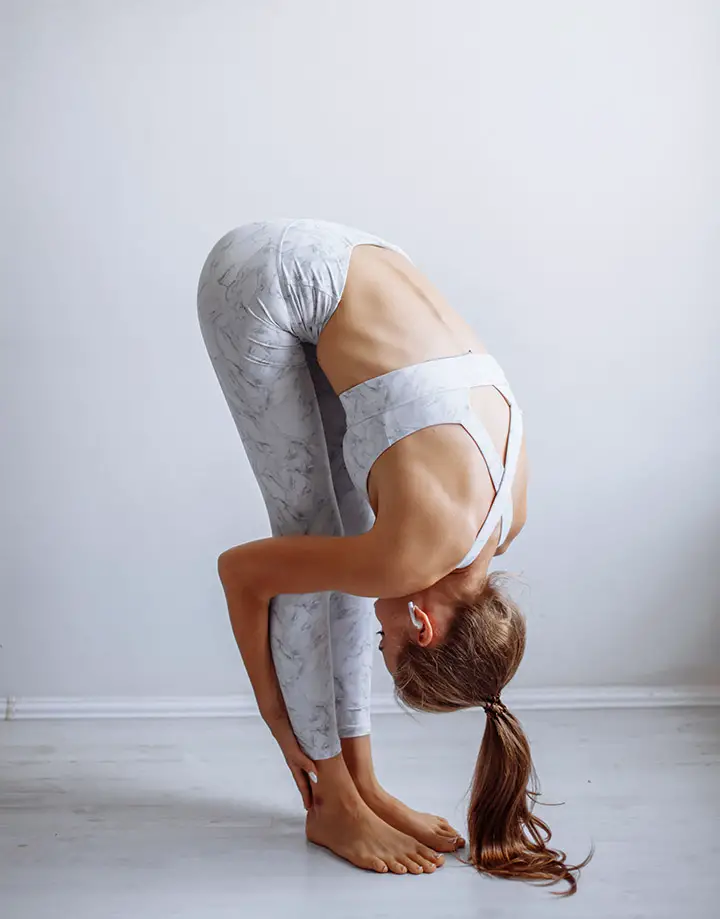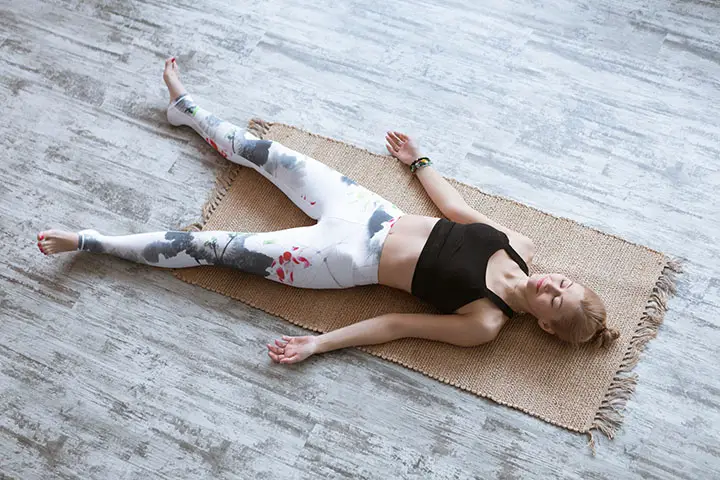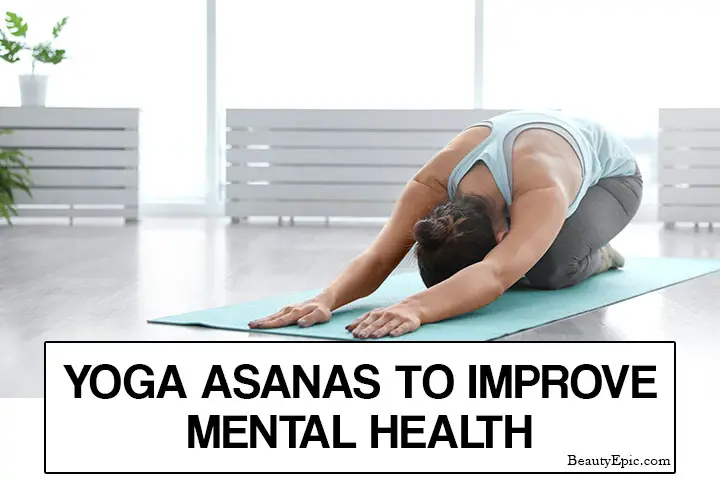
Important: This article is for informational purposes only. Please read our full disclaimer for more details.
Many people have started to practice yoga asanas after learning that it offers quite a lot of health benefits. If you are in the habit of practicing yoga daily, then you will find yourself in a better shape of mind. It will help in increasing the flow of blood in your body and will provide more oxygen to the cells of the body. Apart from offering plenty of health benefits, it also helps in soothing and calming your mind.
Yoga Asanas for Better Mental Health
1. Balasana
How to Do:
- Lay the yoga mat on the floor.
- Kneel on the mat and make sure that the big toes of both the feet touch each other.
- Keep the knees on the edge of the yoga mat and ensure the spine is erect.
- Bend forward in such a way that your thighs touch your chest and your forehead goes beyond the knees to touch the mat or a towel placed on the mat.
- Let your palms face the floor and straighten it by the sides of your body.
- Hold this position for 20 to 25 seconds.
No of Repetitions: Repeat it for 5 to 6 times.
How it Helps: Lowers bloating, improves digestion, energizes the body and mind, boosts mental health, and reduces back pain.
[ Read: Yoga Poses to Relieve Anxiety ]
2. Viparita Karani Pose
How to Do:
- Lie down with your back on the floor.
- Take the hands and place it under your body with the palms showing up.
- Hold the hip on either side with the palms and try to raise your legs and then your body by shifting the weight of your body on your arms and elbows.
- The legs should be in a right-angled position to the trunk.
- If you are close to a wall, then you can place the feet on the wall and keep it straight against the wall.
- Toes should be bent towards your body to give a good hamstring stretch.
- The hands should lay face down on the floor and in a stretched position.
No of Repetitions: Hold in this yoga pose for about 3 to 5 minutes and repeat it for 2 to 3 times.
How it Helps: Calms and relaxes the mind activates the nervous system and reduces insomnia and depression.
[ Read: Yoga Poses to Reduce Fatigue ]
3. Standing Forward Bend Pose
How to Do:
- Stand on the mat straight with your feet and big toes touching each other.
- Place your hands on your hips and take a deep breath in.
- Now, move your hands above you and move your torso forward while exhaling.
- You should move on until your hands to touch the ground close to your feet.
- All this while the knees and legs have to be straight.
- Hold on to this bent position for 10 to 15 seconds and then release by moving your body up using your abs.
No of Repetitions: Repeat this procedure 4 to 5 times.
How it Helps: Helps fight depression and anxiety symptoms, reduces headache and fatigue, calms the mind, and helps indigestion.
[ Read: Morning Yoga Poses to Start Your Day ]
4. Savasana
How to Do:
- Lay flat on your back on the mat.
- Place your palms on the sides of the body and it should be pointed upwards.
- The legs must be relaxed and one the edges of the mat.
- Close your eyes and start with small breaths and then move onto deep breaths.
- Be in this position for 5 minutes.
No of Repetitions: Do this for 5 to 10 minutes once or twice a day.
How it Helps: Relaxes your body and mind, boosts mental health and improves concentration.
Practice these yoga asanas every day to improve your mental well-being and to help you stay relaxed and focused.
You Might Also Like:
- How to Cure a Headache Fast with Apple Cider Vinegar
- 10 Best Essential Oils for Headaches
- 10 Natural Home Remedies To Get Rid Of Headache Quickly
- How to Use Peppermint Oil for Headaches?
- Yoga for Migraine: 5 Best Yoga Asanas to Treat Migraine
- 6 Best Yoga Poses to Beat Fatigue and Boost Energy
- Yoga for Sinus: 6 Best Yoga Poses for Sinus Relief
- 10 Foods That Boost Your Mental Health
- Top 5 Yoga Poses to Tone Your Buttocks
- Yoga for Constipation: 6 Best Yoga Asanas to Relieve Constipation
- 6 Simple Yoga Poses to Increase Height
- Yoga for Immunity: 5 Effective Yoga Poses To Boost Your Immune System
- Yoga for Hips – 10 Best Yoga Poses to Keep Your Hips Tight and Strong
